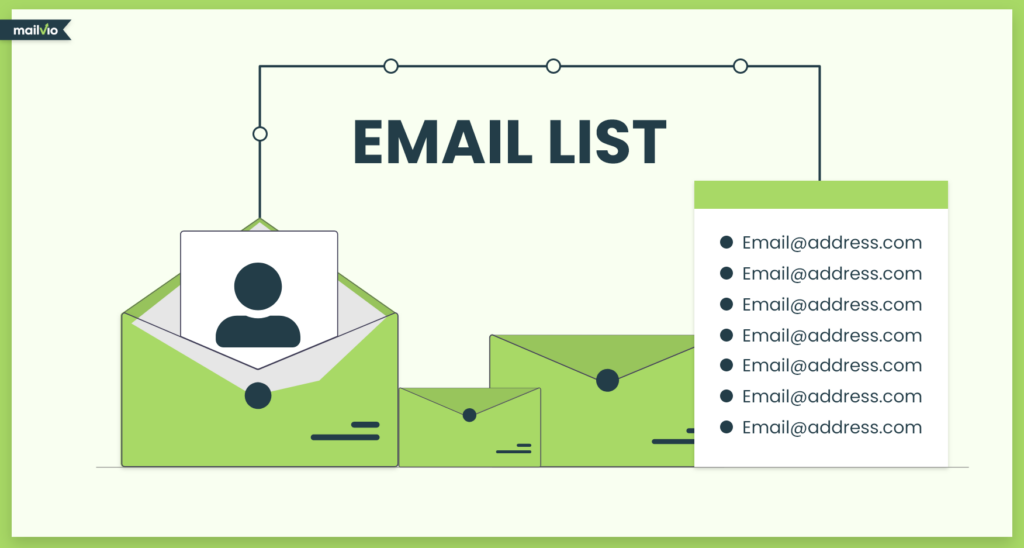Pro Ideas For Deciding On A Family Medicine Email list
What Do I Need To Be Thinking About When Purchasing An Hematologist Email List?It's crucial to think about a number of aspects when buying an hematologist's mailing list to make sure that the list you buy is up-to-date, in line with the law and applicable to the marketing objectives. Below are a few important factors to consider. Quality and Accuracy of the Data
Source of Information: Make sure that the email list service uses reliable sources, like medical databases, professional directories or authentic opt-ins obtained from hematologists. How accurately the contacts are gathered will determine the quality and reliability of the email list.
Updates and verification: Find out the method used by the service provider to verify data. Validate email addresses to remove invalid and inactive addresses. It is important to update the list on a regular basis, as healthcare professionals are able to alter their jobs or even institutions.
Segmentation and Specialization: Be sure the list is only for hematologists. It could also be divided into locations, degree of experience or hospital affiliation as well as subspecialty. Segmented lists will assist in targeting your outreach more effectively.
2. Legal Regulations
Data Privacy Laws: Ensure that the list of addresses is in compliance with the regulations governing data protection, such as the General Data Protection Regulation (GDPR) in Europe, California Consumer Privacy Act (CCPA) in the U.S., and other relevant laws. This means email addresses have to be gathered with appropriate consent.
CANSPAM Act: If are located in the U.S.A., make sure your list conforms to the CANSPAM Act which regulates all commercial email communications. Infractions can result in penalties and your email may be flagged as spam.
Consent to Opt-In The list should comprise only doctors who have an explicit consent to receive emails from third-party companies. Emails that are not solicited and sent to people without consent can lead to lower engagement and legal problems.
3. Provider Reputation
Research the reputation and experience of the list provider. Reviews, testimonials, and case studies can help you determine whether the firm is well-known. A business with a strong history is likely to offer data of high quality and in compliance.
Transparency: Choose a provider which is clear about the source of data and from where the data was sourced. Providers who are vague and unclear on how they collect data should be avoided.
Customer Support - It's important to choose a provider that provides excellent customer support. If you need assistance for technical issues, inquiries regarding compliance, or even customizing lists, a strong support team will make all the difference.
4. Cost and Return On Investment (ROI).
Pricing Model: Examine the pricing model offered for pay-per-contact, or flat fee. Be sure your pricing aligns to the potential ROI. Also, balance the quality of your list and its quantity in relation to the budget for marketing.
The Refund and Replacement Policy. Most reliable providers will offer either a replacement or refund policy in the event that the email address you use is invalid or old. Clarify this policy's terms before purchasing.
Check out the features on the list such as segmentation options and the data accuracy guarantee from the provider, with the price. It's not worthwhile to purchase the cheapest list when the data quality is not good.
5. Use and Ownership of Data
Multi-Use vs. Single Use Multiple Use: Be sure to understand the conditions that apply to making use of the email list. Certain providers might only permit you to use the list for only one campaign, while other providers might offer full ownership and unlimited usage rights.
Exclusive vs. Shared Lists: Find out whether the list of email addresses is only for your business or shared with other buyers. Exclusive lists are more likely to generate better engagement because the contacts are less exposed to marketing emails.
6. Integration and Data Format
Integration with CRM or email Tools: Make sure that the email list is easily integrated into your CRM or marketing email platforms. It is important that the list be available in standard formats like CSV and Excel, to facilitate integration.
Ease of Use: Assess how easy it is to filter and manage the list. Lists that are hard to manage or segment can hinder the effectiveness of your campaign.
7. Ethical Questions
Relevance of Email Outreach to Hematologists. Be sure that your email outreach is relevant to Hematologists. Sending them materials that don't correspond to their expertise could result in low engagement. It could affect the reputation of your business.
Avoid Spam practices. Do not overload the recipient with too many messages. Sending emails too often could result in spam complaints and damage your reputation as a sender.
Conclusion
The purchase of a list of hematologists is a great tool for targeted marketing. But it should be done with care. Concentrate on the quality of the data, conformity with privacy laws and the credibility of the service provider to ensure that you receive a valuable, accurate, and effective list. Segmentation, legal compliance and ethical marketing are essential aspects to be considered in order to maximize your return on investment. Take a look at the top rated hematologists email list for blog advice.

What Factors Should I Think About When Purchasing An Urgent Care Email List?
Take note of these points before purchasing the urgent list of email addresses. It is important to make sure the list is correct and efficient, that it is compliant with law and it meets your marketing objectives. Below are some important aspects to consider. Data quality and accuracy
Source of the Data You must ensure that the provider you choose to use collects its information from reliable sources like medical association databases, professional directories, or health databases. Avoid lists that are created through scraping, or any other method that may not be trustworthy, as they could contain outdated information.
Verification Process - Confirm that email lists are regularly updated and inspected. A reputable service provider will follow an extensive procedure of verification to get rid of invalid or outdated email addresses. This will guarantee high delivery and lower bounce rates.
Segmentation and Targeting The list should include choices for segmentation like the location (city or province or region), the size of the facility (e.g. diagnostics, pediatrics), or roles of decision-makers (e.g. medical directors, managers). A targeted list enhances the value of your outreach, and also increases the rate of engagement.
2. Legal Regulations
Data Privacy Laws - Ensure the list conforms to applicable data privacy laws like the General Data Protection Regulation in Europe and the California Consumer Privacy Act in the U.S.A. This means that email data must be collected and processed legally with the permission of all the parties who are involved.
CAN SPAM Act Compliance In the U.S. your email marketing campaign must adhere to the CAN SPAM Act. Include your physical address, avoid false subject lines, and offer an easy opt-out mechanism. Non-compliance with the law can cause damages to your business's reputation.
Opt-In Consent - Ensure that all recipients of the email address on your list have consented to receiving marketing communications from third parties. This decreases the risk of receiving spam complaints or legal problems.
3. Provider Reputation
Choose an established service: A track record of providing high-quality and compliant email list is a good indication. Review reviews, testimonials or case studies to assess the reliability of the service.
Transparency: The service provider must be clear about how the data was sourced and how often it's up-to-date. It could be an indication of a poor quality data when the service provider fails to give clear information about the method of collecting data.
Customer Support: Having a strong customer service is crucial if you need assistance in relation to technical issues, list customisation, or even compliance. You'll get more value out of the list if you choose a service that you select is a good fit.
4. Return on investment (ROI) and cost
Pricing Models: Email lists suppliers typically offer different pricing models such as pay-per-contact and flat costs. Take into account the pricing model and the budget for marketing. Examine the quality and cost of the list with relevant information.
Refund Policy or Replacement Policy. Trustworthy providers will offer the option of refunds or replacement policies when the majority of emails are invalid or non-deliverable. Make sure to clarify the terms of this policy before you purchase.
Value for Money: Rather than choosing the cheapest option look for lists that are worth your money thanks to accurate information and precise segmentation. A top-quality database can increase engagement and return on investment.
5. Data Ownership and Usage
Single-Use and. Multi-Use: Clarify whether you can make use of the list for a single campaign or several times. Multi-use lists are better, especially if your plan is to launch a series of outreach campaigns.
Exclusive vs. Shared Lists: Determine the list's exclusivity to your company or is it is shared by other buyers. The shared list can cause tired recipients who might receive messages from multiple businesses.
6. Data Integration and Format
CRM compatibility: Make sure whether the email list is sent in an email format that is compatible with either your Customer Relationship Manager (CRM) or email platform. This could be CSV or Excel. This will ensure a seamless and quick integration.
User-friendliness Email lists must be simple to segment and manage by specific requirements. An organized email list allows you to target and personalize your messages.
7. Ethical Considerations
Relevance of Content: Doctors who work in urgent care are often busy, so your communication should be timely and valuable. You should tailor your message to their specific needs, like medical equipment, supplies or medical technology that aligns with urgent care operations. Unrelated content could harm your brand's image and cause less engagement.
Be mindful of the frequency with which you send emails. Sending unsolicited emails or over-emailing can result in spam complaints and can damage your reputation as an emailer.
Conclusion
When you purchase an urgent email list, pay close attention to the quality of the data, the legal compliance, and the reputation of the seller. Check that the list is segmented and updated regularly and in compliance with privacy regulations. By investing in a high-quality targeted list, and sending relevant content, you can increase engagement and earn an impressive return on investment. View the expert urgent care email list for more examples.
